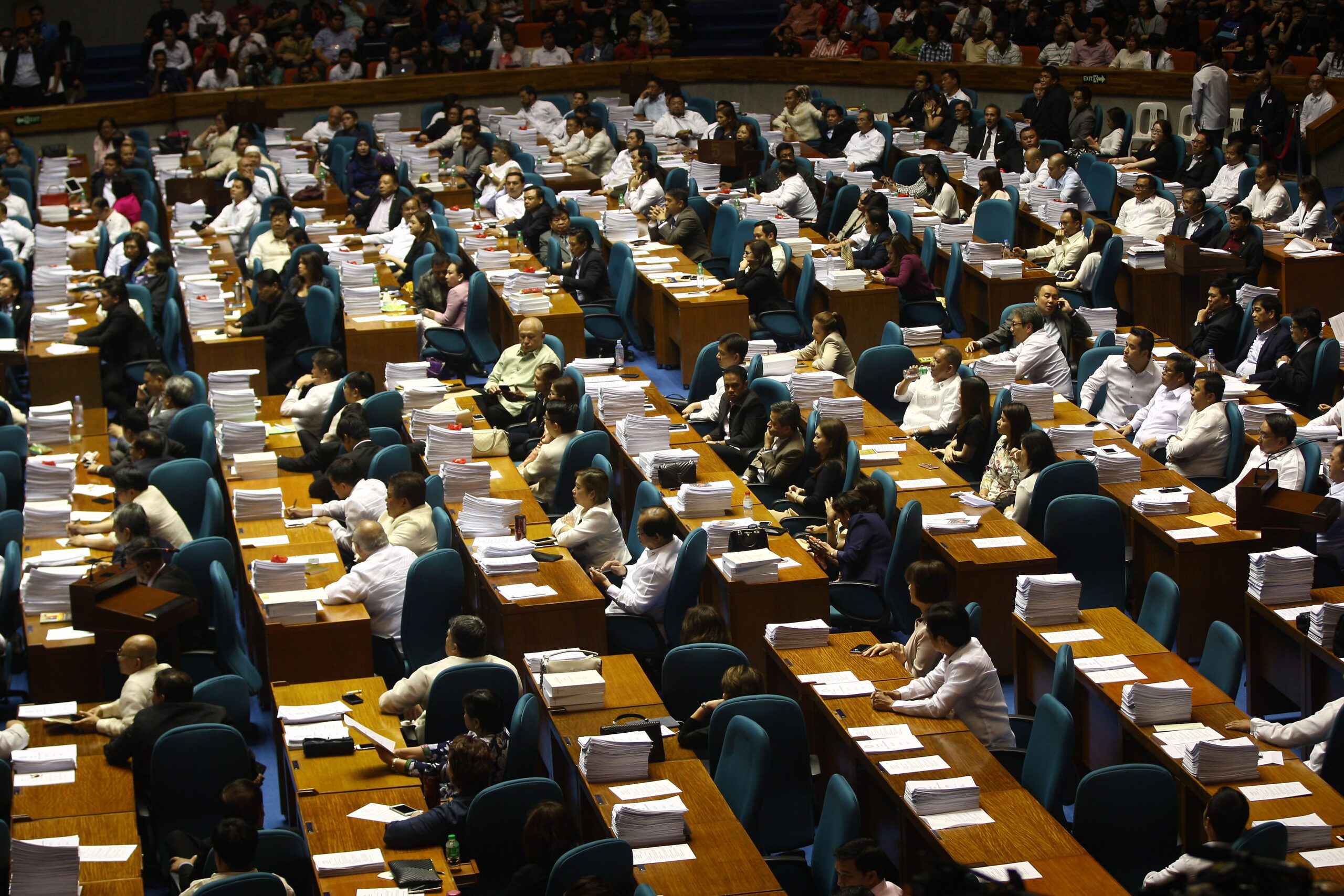SUMMARY
This is AI generated summarization, which may have errors. For context, always refer to the full article.

MANILA, Philippines – The House of Representatives approved on 2nd reading a bill that would allow foreigners to own public utilities in the Philippines.
Legislators approved House Bill (HB) No. 78 through viva voce voting or a vote of ayes and nays on Tuesday, February 18, about 5 months since House committee on economic affairs chairperson Sharon Garin sponsored the bill in the plenary.
The 1987 Constitution currently requires that at least 60% of public utility enterprises’ capital stock must be owned by Filipino citizens or corporations.
But HB No. 78 would provide a more explicit definition of public utility, which is defined under the measure as a person or entity that “operates, manages, and controls for public use” any of the following:
- distribution of electricity
- transmission of electricity
- water pipeline distribution system
- sewerage pipeline
If passed into law, the bill would give the National Economic and Development Authority (NEDA) secretariat and the Philippine Competition Commission (PCC) the power to recommend to Congress the classification of a public service as a public utility based on these criteria:
- The person regularly supplies and directly transmits and distributes to the public.
- The commodity or service is necessary to the public and a natural monopoly that “needs to be regulated when the common good requires.”
- The commodity or service is necessary for the maintenance of life and occupation of residents.
- The commodity or service is obligated to provide adequate service to the public on demand.
This means that if NEDA and the PCC deem a public service should be opened up to foreign owners, Congress would have to pass another bill.
But during the period of amendments, lawmakers introduced provisions that would not allow entites operating air transportation as well as Philippine ports and airports to be considered as public utilities.
Opposition delays, but fails to stop 2nd reading
HB No. 78 was supposed to be approved a day earlier on Monday, February 17, but lawmakers opposed to the measure were able to stall its 2nd reading passage.
At the start of the session, Buhay Representative Lito Atienza first questioned the accuracy of the House secretariat’s count that 228 lawmakers were present during the session. Atienza said he and his staff counted only 146 legislators physically present on the floor.
A few minutes later, Deputy Majority Leader Xavier Jesus Romualdo moved to substitute HB No. 78 with another version of the bill just before the period of amendments was opened during Monday’s session.
Opposition lawmaker Albay 1st District Representative Edcel Lagman then stood up and asked if it were necessary for the House committee on economic affairs to first act on the substituted bill before it is brought to the plenary.
Romualdo then replied the substituted bill was approved by the committee on rules – which decides which measures are tackled in the plenary – “upon the recommendation” of the economic affairs panel, the sponsoring committee.
After Lagman’s interpellation, the plenary temporarily suspended considering HB No. 78 for day.
Opposition lawmakers have long opposed the bill, saying that it is unconstitutional.
“If this amendment gets through, we would see our public services turned into super-profit generating, 100% foreign-owned enterprises. We would be fully at their mercy,” Bayan Muna Representative Ferdinand Gaite said in December 2019.
This is not the only bill being pushed in the House seeking to ease restrictions on foreign investments in the Philippines. (READ: [ANALYSIS] The real score on foreign direct investments)
Several bills and resolutions aimed at amending parts of the Constitution are likewise pushing to lift the constitutional restrictions on foreign investments – either by completely removing the 60-40 rule or by giving Congress the power to pass a law that would allow this. (READ: Business groups in favor of easing restrictions on foreign investments)
In 2019, the House already passed a bill that would allow foreigners to practice their professions in the Philippines. – Rappler.com
Add a comment
How does this make you feel?
There are no comments yet. Add your comment to start the conversation.